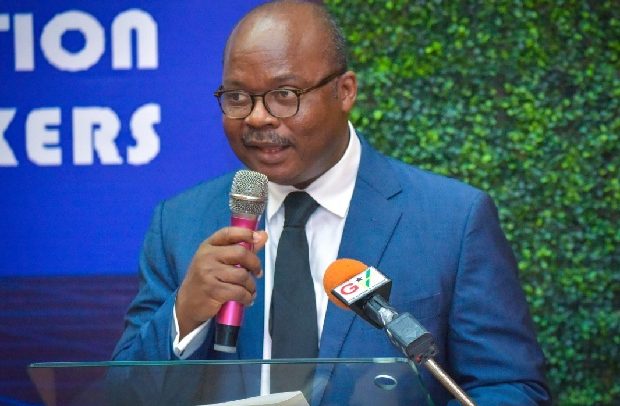Dr. Ernest Addison
THE PROVISIONAL data of the Bank of Ghana (BoG) on the budget execution for January to May 2022 indicated an overall broad fiscal deficit on a cash basis of 5.0 per cent of Gross Domestic Product (GDP), against a programmed target of 3.5 per cent of GDP.
Dr. Ernest Addison, BoG Governor, noted that the first five months of the year showed a higher deficit driven mainly by significant shortfalls in revenues relative to projections.
“Over the period, total revenue and grants amounted to GH¢29.5 billion (5.9 percent of GDP), below the projected GH¢34.8 billion (6.9 percent of GDP).
“However, total expenditure was GH¢48.9 billion (9.7 percent of GDP), below the programmed target of GH¢51.8 billion (10.3 percent of GDP),” he added.
Dr. Addison sated that, the execution of the budget has been challenging against the backdrop of macroeconomic developments.
He further noted that the revenue underperformance reflected delayed implementation of several new revenue measures announced in the budget.
On the expenditure side, the Central Bank’s governor said higher interest payments led to some pressures despite restraint on primary expenditures especially on capital expenditures which have declined markedly.
Dr. Addison added that these developments impacted the stock of public debt which increased to 78.3 percent of GDP (GH¢393.4 billion) at the end of June 2022, compared with 76.6 percent of GDP (GH¢351.8 billion) at the end of December 2021.
According to the committee, interest rates generally trended upwards in tandem with the bank’s policy stance.
The upturn in the Interbank Weighted Average Rate (IWAR) transmitted to the retail-end of the market, with the average lending rates of banks increasing to 24.27 percent in June 2022, from 20.04 per cent in December 2021.
Dr. Addison said the international commodity prices exhibited increased volatility during the first half of the year as crude oil prices hit historical highs. Crude oil prices rose sharply due to the limited capacity of OPEC+ to increase production as well as supply constraints from geopolitical tensions.
“Financing of the budget was entirely met from domestic sources during the first half of the year as planned borrowing from international sources did not materialize,” he stated adding that “the outlook is for continued tightened borrowing conditions and this underscores the need to reprioritise spending programmes within the available financing envelopes.”
BY Hudda Bala Abdul Manan


